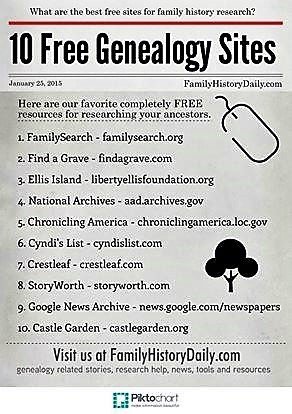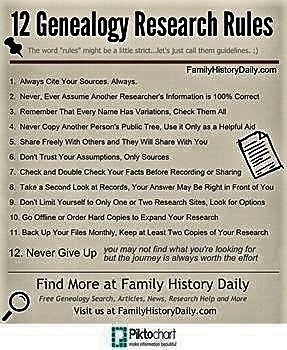Introduction to Genealogy (Part 1 or not)
As mentioned in my first post, I am currently busy with the family tree which came about when my younger brother decided that he wanted to research the family. I received an e-mail from him asking me whether I knew what our father's parents names were. To be totally honest - I did not but I did know his mother's name. I chatted to and e-mailed the gentleman with whom my brother had spoken to but he could not assist or find anything in this regard especially seeing as my brother was told that our grandfather was a Principal at a school in Stellenbosch. So, based on this and also because I had the time, I started to do some research on my own.
My first recommendation would be for you to Google what you are looking for. You will be amazed at what you can find by doing this. This is where I first found the South African Genealogy site and registered. So, my second recommendation would be that you register on the sites which you find where you may believe that they can assist you. For example, the following information was put in the "Files" section of the South African Genealogy site of which I am a member (https://www.facebook.com/groups/7627302901/files/).
(a) Apply quotation marks.
If you are research James White, use "James White" or "White, James" to limit your results. There are many genealogy sites which place the last name first. You can also apply quotations around terms like "obituary" - this makes them more exact.
(b) Use the minus sign.
Often when searching for ancestors, especially those with common names, we find that a certain person or location we are not looking for, keeps turning up clouding our results. For instance, a James White who lives in Somerset keeps coming up but he is not the person who we are researching so we will exclude the term Somerset. Place a minus sign before a term to exclude these unwanted results (Example: "White, James" 1878 mahala -somerset). Just make sure that the minus sign is placed directly before the term with no space in-between. This works to exclude specific sites as well (-rootsweb).
(c) Get Site Specific Results.
You can get search results only for a specific website e.g. such as Familysearch.
Use ‘site:SITEURL’ before a term or terms to do this. Example: site:familysearch.org “white, james” – note that we did not place a space between ‘site:’ and the url and that we did not include the ‘http://www’ part either.
(d) Search only Page Titles.
When looking for a specific ancestor is can be very helpful to have the pages you turn up only be ones that focus on that individual alone. Or, when searching for a surname, to find articles centered around that specific last name. Making sure a search term appears in the title of the page is a good way to do this. This is not always true of course, and you will miss a lot of results this way but when looking for discussions about a person, biographies or in-depth data it can be a very helpful trick. To search only web page titles use ‘allintitle:’ Example: allintitle: “White, James.” You can also search only the text, and exclude the titles, by using ‘allintext:’
(e) Search a Date Range.
This is one of the best and most underused Google search tips for genealogists. This super cool trick lets you search multiple dates at one time without having to enter them individually. This is hugely helpful if you are looking for birth, marriage or death records (or any date based source) but don’t know the exact date of an event.
Just add DATE..DATE to your search box to accomplish this (two periods in between the dates like this 1900..1910). For instance, we know that James White was most likely born between 1835 and 1839 based on the information we have, so we could search for “Wilcox, James” 1835..1839. This will bring up only pages that include one or all of the dates 1835, 1836, 1837, 1838 and 1839. It will not exclude pages that include other dates (which we usually would not want to do.) But if we did want to do that we could exclude any date by typing -DATE, such as -1840 after our other terms.
(f) Search for Terms Near Each Other
One of the most frustrating things about searching for ancestors in Google is that, while the engine will search an entire page for your terms, your terms may not have any association to each other. As mentioned early on in this article, that can cause major problems for genealogists since many pages include long lists of dates and names. It is entirely possible, for example, to find the exact names, dates and other details you are looking for — but not in relation to each other in any way. For instance, our searches for James White and 1837 turned up pages that include James White and the date 1837, but that date was often applied to other people on the page.
However, there is a way to ask Google to find terms near each other! Enter AROUND(1) between terms to do this. An example would be: “James White” AROUND(10) 1837. That means we want Google to look for pages where the exact name James White appears within 10 words of the date 1837. You can change the modifying number to anything you want (“James White” AROUND(3) 1837 or “James White AROUND(1) Mahala) a lower number means a closer association and thus, usually, fewer results. We can also apply this to multiple terms (Example: “White, James” AROUND(10) Mahala AROUND(5) 1837). You will be blown away by how much this helps you find more relevant results.
We hope these ‘secret’ tips help you in your Google genealogy searches! Don’t forget to combine them to maximize your results. And, when you’re done trying these out, check out our Google Image Search for Genealogy help article for more tips.
Note: Sometimes when you apply these operators, especially if you do so several times in a row, Google may check to make sure you’re a real person and not a computer by transferring you to a captcha verification page. Do not worry, just type in the characters and proceed — and try not to get too excited that you are geeky enough to be considered a computer by Google.
Above information was compiled by Family History Daily.
A lot of research through various archives and records have been done by registered researchers which they have put into the "Files" section with the necessary links. This will save a lot of time and effort as most of the work has been done for you. With these links they sometimes take you to photos of documents such as Death Notices, Birth Certificates/Baptisms etc. (https://www.facebook.com/groups/7627302901/files/).
Sites which you may find of interest :
Family History Daily - (http://familyhistorydaily.com/). Facebook site where you can "Like" and "Follow" - https://www.facebook.com/familyhistorydaily. This site will also have posts like the following: "50 Free Genealogy sites to Search Today" - http://bit.ly/1AqMAiq.
Cyndi's List - http://www.cyndislist.com/. Very useful site. Contains links to various sites such as National Automated Archival Information Retrieval System, Ancestry but to mention but a few.
South African Identity No - https://www.identitynumber.org/. You have to pay to be able to access the necessary information on this site but you can check on "Deaths" to see if your ancestor is on the database.
10 Free Sites which you may want to check out as well (courtesy of FamilyHistoryDaily) -

So, by now everyone who is ever interested in doing Genealogy should have a very good idea on where to start so I will stop blabbering now and as I continue with my research, I will keep all updated on any new findings, hints, ideas etc. but before I do, a few guidelines to assist you (courtesy of FamilyHistoryDaily):

Very interesting and well described post @leep. I believe the @cheetah bot is pointing out that you have not referenced your sources, which you clearly have but not in a format that it recognizes.
rather than saying "10 Free Sites which you may want to check out as well (courtesy of FamilyHistoryDaily) - " ...say "reference:www.familyhistorydaily.com" or "Credit: familyhostorydaily.com".
Yes I know this is all very confusing when you first get here (I see you only just joined) but Steemit is still in beta and is getting more and more user friendly.
A useful place to start would be https://www.steemithelp.net/ ... hosted by I think @thecryptofiend.
But I think an excellent first post, resteemed and upvoted..
Thank you @themagus for your comments. I will check out the links mentioned and make note for future reference.